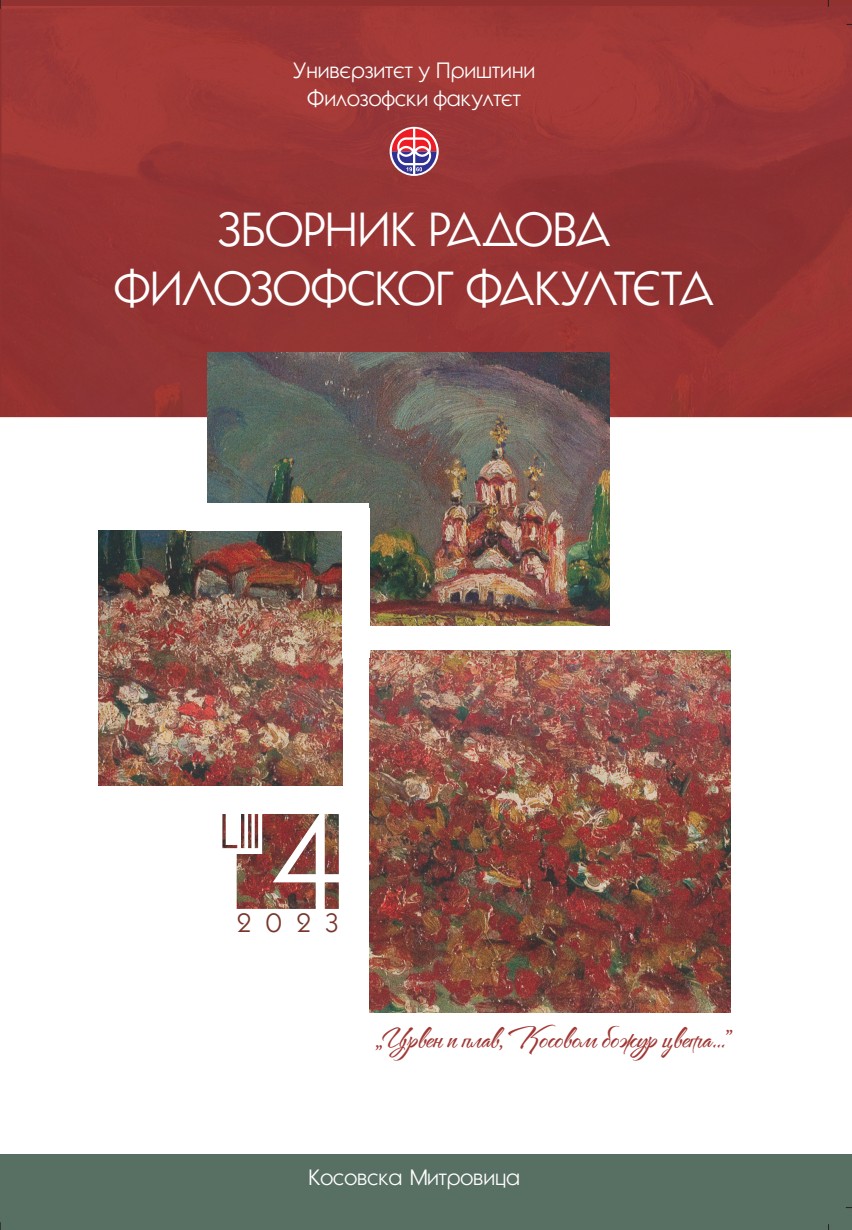Транспозиција библијске легенде у делу „Жертва Аврамова” Викентија Ракића
Transposition of the Biblical Legend in “Žertva Avramova” by Vikentije Rakić
Author(s): Emilija A. PopovićSubject(s): Serbian Literature
Published by: Филозофски факултет, Универзитет у Приштини
Keywords: Žertva Avramova (Abraham᾽s sacrifice); dramatic elements; Vikentije Rakić; Old Testament; family cult; romantic irony.
Summary/Abstract: The focus of the paper is on the analysis of the dramatic elements in the religious epic “Žertva Avramova” (“Abraham's Sacrifice”) by Vikentije Rakić. By interpreting the thematic-motif preoccupations of Rakić’s religious epics—the cult of family and sentimental friendship—we conclude that “Žеrtva Avramova”, which in literary studies has different genre designations, contains dramatic elements reflected in the ambivalence when conceptualizing fictional characters who, as much as they are embedded in the family microcosm, are also devoted to Divine providence. Mother Sarah, whose role in the biblical template is non-existent in relation to the religious epic, is portrayed alongside her son Isaac, the representative of an activist concern for his own existence. In the end, we have Father Abraham who experiences a strong internal conflict, the origin of dramatic literature. Dramatic elements, therefore, can be seen in the family theme from which the dramatic situation arises, shaping the characters, and less so in the formal features—such as the sporadic didaskalia found in “Žertva Avramova” (“Abraham's Sacrifice”) and the structure of the work itself. The latter can be divided into dramatic phases: prologue, plot, culmination, peripetia, and dramatic outcome. The paper will specifically explore the relationship between the “Old Testament” model, inheriting the cosmic vertical God-Man dynamic, and the religious epic introducing the horizontal human plane—Man-Man. According to initial premises, this relationship implies the presence of (pre)romantic irony or romantic irony at its inception, which, within the studied epic, reflects an ambivalent attitude towards the biblical moral-didactic teaching.
Journal: Зборник радова Филозофског факултета у Приштини
- Issue Year: 53/2023
- Issue No: 4
- Page Range: 167-185
- Page Count: 19
- Language: Serbian

